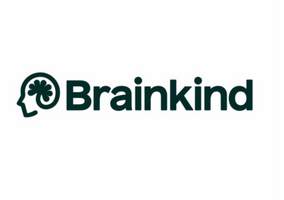End-of-life care charity Sue Ryder has cut its net deficit to £7.5m at the end of 2023-24, compared with £11m the previous year, as it divests its neurological services.
In its latest annual report and accounts for the year ended 31 March 2024, the organisation posted a 3% rise in year-on-year income, from £112m to £116m, with an increase in expenditure from £123m to £124m.
Its fundraising activities fared better than in the previous financial year, with income increasing by £2.3m to £19.6m. Donations rose by £800,000 to £8.9m, while legacies, which saw a steep fall in 2022-23, grew 20% from £6.4m to £7.7m.
The charity also continued to record strong growth in its retail activities, which pulled in £62.5m, up 8% compared with £58.9m in 2022-23.
But the accounts also show ongoing pressure on Sue Ryder’s finances, with staffing costs a major factor, despite transferring hundreds of employees to Brainkind, formerly the Disabilities Trust, which is acquiring its neurological services.
Ongoing staffing cost pressures
The charity said last year that spreading its focus across palliative, neurological and bereavement support had become “increasingly challenging” and that it was time “to focus our strategic direction and growth on palliative and bereavement support and divest our neurological services”.
Three of Sue Ryder’s four neurological services were divested in November 2023, cutting the organisation’s running costs by £7.3m – although the remaining service recorded a £3.8m impairment.
While total staffing costs for 2023-24 rose by just 0.2%, from £73.8m to £74m, the 2022-23 total includes a full year paying staff at the four neurological services.
“Removing the costs relating to these services shows that underlying pay costs are up £3.9m,” the annual report stated.
“This increase includes annual uplifts in rates of pay required to keep pace with market rates and statutory increases in the National Living Wage, as well as contributions to workplace pensions.”
Palliative and end-of-life pay costs were up £1.4m on the previous year, at £26.4m. Meanwhile retail pay increased £1.1m on the prior year to £20.8m.
Reserves fall by £7m
Aside from staffing costs, the charity pointed to an approximate 25% year-on-year increase in the price of food, medical supplies and utilities used by its healthcare services.
Investment in its bereavement services saw costs rise by £0.4m to £2.8m, while central support costs – including marketing activities – increased by £4.2m.
Retail activities helped offset the financial squeeze to some extent, with income rising £3.6m to £62.5m, generating an £8.7m surplus contribution compared with £5m the previous year.
In all though, the charity’s reserves fell by just over £7m year on year, standing at £52.3m on 31 March 2024, compared with £59.8m 12 months earlier.
Related Articles













